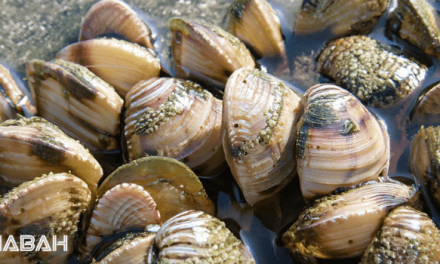As a food enthusiast and a firm believer in the importance of halal dietary choices, I embarked on a fascinating journey to uncover the halal status of whale meat. In this comprehensive guide, I will delve into the intricacies of halal certification, the religious perspectives surrounding consuming exotic meats, and provide a definitive answer to whether whale meat can be enjoyed with confidence by those adhering to halal principles.
Why Can’t Islamic Scholars Agree If Whale is Halal?
Halal is an Arabic term meaning “permissible” under Islamic law. When applied to food, halal refers to what Muslims are allowed to eat and drink according to the Quran and teachings of the Prophet Muhammad. The criteria for halal food includes:
- The food must come from an animal slaughtered according to Islamic guidelines
- Certain types of meat are prohibited, such as pork
- Alcohol and other intoxicants are forbidden
The main question explored in this article is: Is whale meat considered halal for Muslims to eat? There is debate among Islamic scholars about the permissibility of eating whale meat. This article will analyze the evidence from both sides of the argument.
To analyze this issue fully, we will first provide background on whales and review the Islamic legal perspectives.
Background on Whales
Whales are marine mammals that live in oceans around the world. There are two main types of whales:
-
Baleen whales – Generally larger whales that filter feed on krill, plankton, and small fish. Examples are humpback, blue, and grey whales.
-
Toothed whales – Tend to be smaller and hunt fish, squid, seals, and other marine mammals. Examples are sperm, beaked, and killer whales.
Some key facts about whales:
- Highly intelligent animals with complex social structures
- Endangered species due to commercial whaling and other threats
- Slow to reproduce; long gestation times and few offspring
- Crucial role in marine ecosystems
The threatened status of many whale species has led to international whaling regulations and bans by organizations like the International Whaling Commission (IWC). However, a few countries still practice commercial whaling, such as Japan, Norway, and Iceland.
“Many species of whales face numerous threats including entanglement in fishing gear, ship strikes, ingested plastics, ocean noise pollution, and direct hunting.”
The halal status of whales relates to whether we should consider them as fish from the sea, which are permitted, or as protected mammals. Next we will overview the Islamic legal perspectives.
Islamic Perspectives
There are several considerations from Islamic jurisprudence regarding the permissibility of eating whale meat:
Classification of Whales
- Whales are scientifically classified as mammals, not fish. However, in the classical Arabic terminology used by early Islamic scholars, whales were generally categorized as “sea game” along with other creatures of the ocean.
“The fuqaha’ included whales and dolphins in the category of ‘sea game’ alongside fish and crustaceans.”
Permissibility of Seafood in Islam
-
The Quran explicitly allows consumption of food from the sea:
“Lawful to you is game from the sea and its food as provision for you and the travelers.” (Quran 5:96)
-
The Prophet Muhammad (pbuh) also emphasized sea creatures as halal.
“Its water is purifying and its dead are permissible (to eat).”
Positions of Islamic Schools of Thought
-
Permit whale meat: Hanafi, Maliki, Hanbali
- Consider whales as from the sea, so default is that they are halal
-
Prohibit whale meat: Shafi’i
- Argue that whales must be slaughtered properly on land to be halal
There are reasonable cases from both angles based on the principles of Islamic law. Next we will look at how this debate extends into the modern world.
Modern Debates
The halal status of whales is contested today due to several factors:
Growth of the Halal Industry
- Rising global Muslim population and demand for halal products
- Whale meat exported to Muslim countries from whaling nations like Japan, Norway and Iceland
- Marketed as “halal whale meat” to consumers
“Halal certified whale meat is now being sold predominantly in Japan, Norway and Iceland under the premise that it is Seafood which is universally considered Halal by Islamic Scholars.”
Conservation Concerns
- Commercial whaling threatens endangered whale species
- Islamic principles on environmental protection
“Many Islamic scholars argue that the Qur’anic verses and Prophet Muhammad’s (pbuh) hadiths that allow whale meat consumption date from a time when whales were abundant.”
Ethical Dilemmas
- Whether whale hunting today adheres to Islamic guidelines
- How whaling impacts marine ecosystems
- Consideration for sentient animals that exhibit intelligence
“At a time when we know so much more about these creatures, there is little doubt that whales deserve our appreciation, rather than a harpoon in the back.”
There are strong opinions about preserving whales versus continuing traditional whaling practices.
Conclusion
The question of whether whales are halal to eat in Islam remains disputed among scholars. There are good faith arguments on both sides:
- Schools of thought permit whale meat as coming from the sea
- Other interpret whales as protected mammals that must be slaughtered
Modern factors add complexity:
- Whale meat marketed as halal despite conservation worries
- Unsure if whaling aligns with Islamic ethics on environment and animal welfare
In conclusion, there is no consensus within the Islamic community regarding the halal status of whale meat. This is an issue requiring further in-depth study and discussion among scholars.
Muslims today who may consider eating whale should weigh not just the legal ruling but also:
- The ethics of eating an endangered intelligent species
- Our responsibility as stewards of the environment
- The humane treatment of animals
“In the end, Muslims must come to their own conclusion over whether consuming whales and dolphins is ethical and permissible.”
A thoughtful approach is needed, along with dialogue to establish clarity on the halal standing of whales in Islam.





